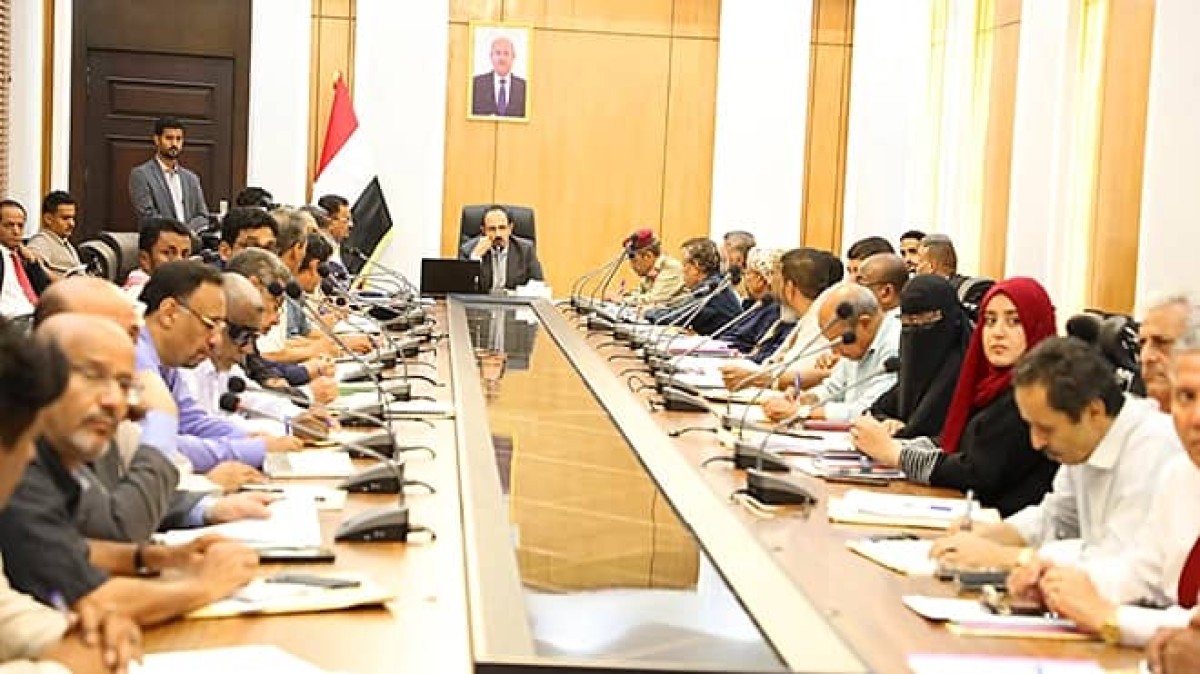Hadhramaut is besieged by the repercussions of the decision to preserve its financial resources


The local authorities in Hadramaut Governorate were keen to clarify their decision to retain their financial resources and not transfer them to the Central Bank, after the decision sparked criticism that went so far as to accuse the governor of launching a series of regional rebellions against the authority of the Presidential Council led by Rashad Al-Alimi.
Governor Mabkhout bin Madi confirmed that the decision to stop sending revenues to the government “is not a rebellion” and that it was taken to provide services to the people of the governorate “after all doors were closed” in their faces.
The Executive Office in Hadramaut surprised observers last week by unanimously approving a decision supporting the deposit of the governorate’s revenues in its own account “in order to fulfill service obligations towards citizens and in gratitude for their role in preserving the spirit of the state and their commitment to order and law.”
The decision was considered a consolidation of independence tendencies within the governorate, especially since it was accompanied by procedures to complete the structure of the Hadhramaut National Council, which some viewed as a parallel authority that consolidates the regional identity of the governorate and contributes to the division of southern Yemen.
Mabkhout bin Madi: Stopping the transfer of revenues to the government is not a rebellion
Bin Madi said, while chairing a meeting that included brigade commanders and heads of divisions and military units in the second region, that “Hadramaut was and still is a symbol of the application of law and order and represents the spirit of the state and the model of its institutions.”
But he added, on the other hand, that “Hadramaut stands by its rights to provide the necessary services to its people and has previously carried out Operation ‘Scale of Justice’ to maintain and maintain security. This is in reference to a large-scale security operation launched at the beginning of last October in a number of areas of the governorate and affected a number of those who violated the law.” The law and those against whom judicial rulings were issued due to their acts of riots, interruptions, lawlessness, and disturbance of the comfort of citizens.”
Bin Madi referred to “the developments in the situation in the governorate and the efforts of the local authority to provide services to citizens and bear burdens that are originally the government’s obligations,” calling “not to pay attention to malicious rumours.”
Hadramaut is the largest governorate in Yemen by area and is distinguished by its location overlooking the sea from the south and open to the Kingdom of Saudi Arabia from the north. It is also distinguished by the fact that its lands contain oil and gas.
Apart from the battles that took place on its soil against Al-Qaeda, which tried years ago to occupy its center, the city of Mukalla, Hadramaut is experiencing a unique security calm compared to a number of other governorates of the country that witnessed bloody episodes of the ongoing war for about nine years between the Houthi group and the opposing forces. It is supported by a Saudi-led military coalition.
However, Hadramaut attracted exceptional attention with the progress of efforts to find a political settlement to the conflict in Yemen, with the intensity of the movement within it, which revolved around the establishment of local political and tribal structures that raised questions about its position in the post-war period, and whether it will remain part of the Republic of Yemen. Will it become a major component of an independent southern state, or will it turn into a region enjoying expanded autonomy?